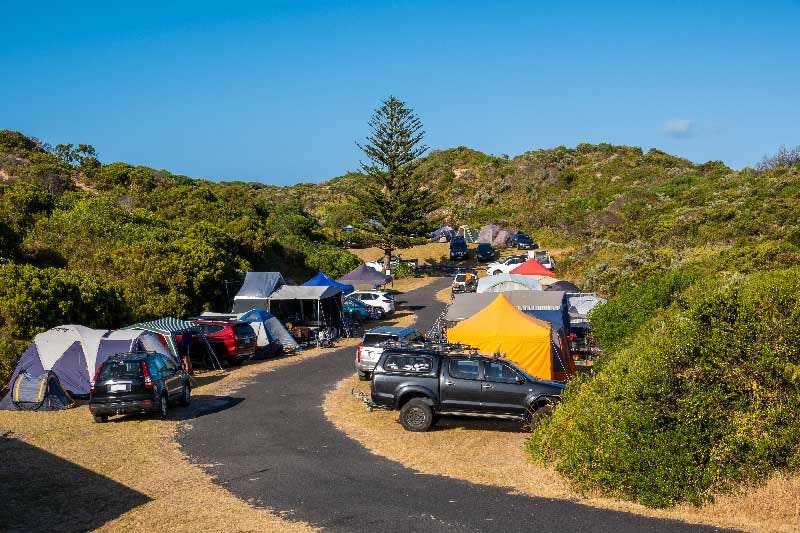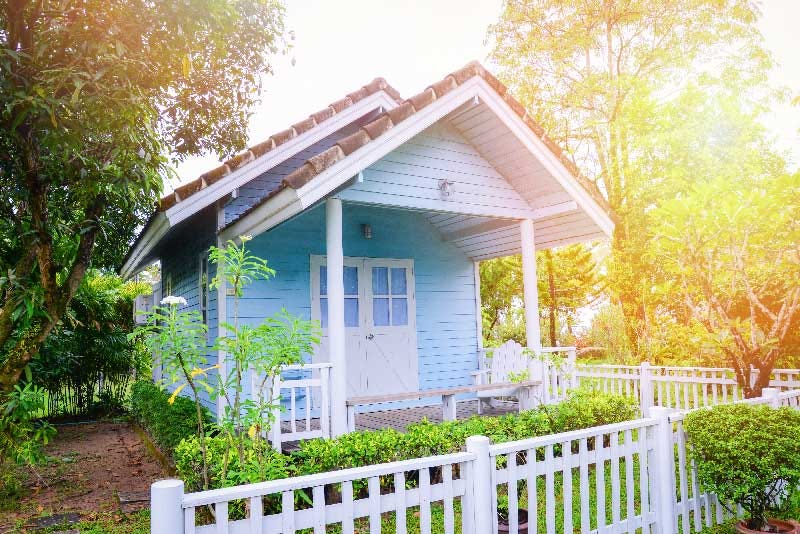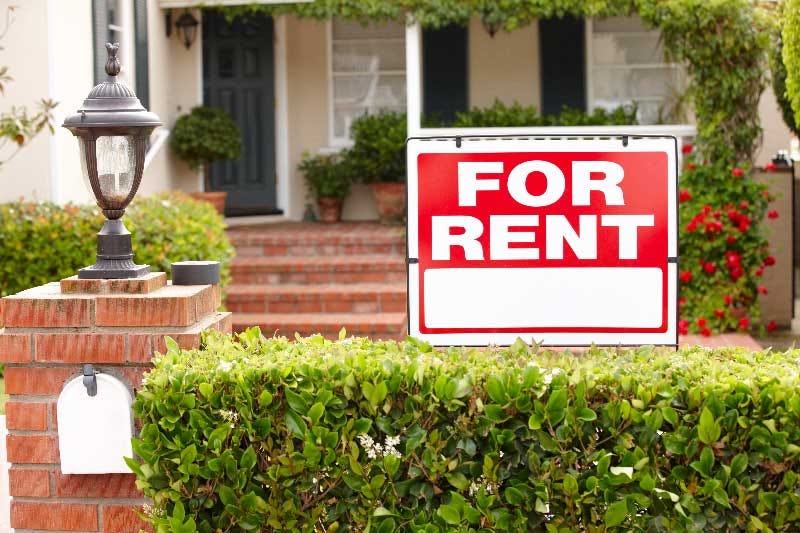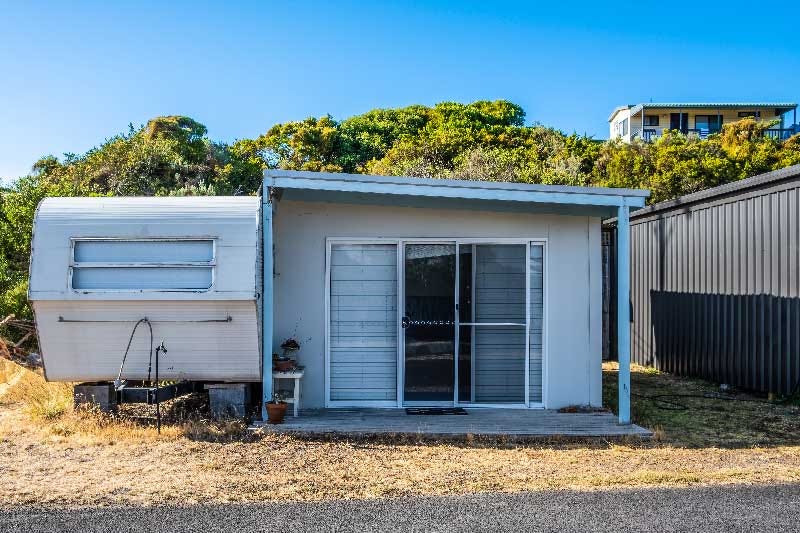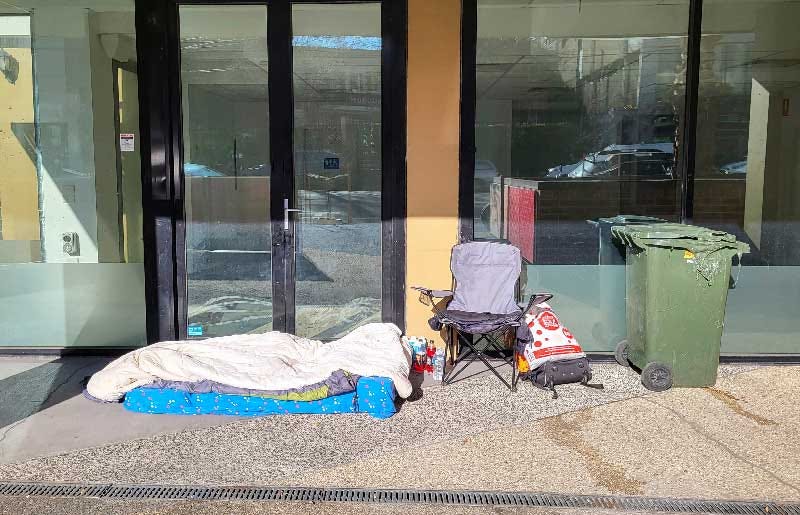How To Find A New Place To Live
Australia's housing crisis makes it difficult for young adults and experienced adults to find a new home. Discover the 10 Best Ways to find a new place to live.
Adulting often involves finding a place to live. It can be a challenging task. Putting a roof over your head can be tricky if you're moving to a new place where you do not know anyone.
The difficulty also depends on many things, such as your renting reputation, whether you have children and pets, and if there are available places to rent. Paying a bond and two weeks' rent in advance is equally important.
In Australia, we're in a housing crisis. A few factors behind this situation include unaffordable rent prices and a lack of places to rent. It's not an ideal market to move right now.
There is the option to buy a roof over your head, which also comes with frustrations such as unaffordable housing prices, lack of houses to purchase and the building market imploding.
Here is my advice for the newest members of the adult community: Stay at home, save your money, and put up with your parents and siblings a little bit longer.
The 10 Best Ways to Find a New Place To Live
1. Live with your parents a little bit longer. Staying at home isn’t so bad and it can be a smart move, although it does depend on your situation.
Can you offer rent money in return or offer to do the chores (such as looking after younger siblings).
If Mum and Dad keep moving your stuff into the garden or chasing you around with pots and pans, the next option might be more palatable.
2. Move in with another relative who has a spare room available. With this option, you will be expected to earn your keep. Unlike Mum’s and Dad’s place, you will have stop texting or tweeting to do your share of chores.
So, sweeten the deal with some rent and help around the house. If you have a regular income, offer to pay your share of the bills. When moving in with an older relative who needs a carer, you may receive a carer payment.
Taking on a live-in carer’s role can help someone else (family or not) while helping yourself and learning much needed social service skills. Looking after our elders or people in need is selfless career.
3. Rent a room. In the old days, room for rent signs were placed in a home’s front window. Sometimes, it was just that; a room for rent, while other times, it was multiple rooms, like a boarding house but without supported living.
When renting a room, there are some serious questions to ask, such as:
Is there a contract to sign? Always read the fine print.
Is your name on a lease agreement? (See A.)
Is this a casual arrangement where someone is renting a room but not reporting it as income on their tax return? Good to know if the deal goes sideways.
Is there a bond? Ask for a receipt. Take photos; selfies are encouraged.
Are you allowed out of the room to share rooms like the lounge, bathroom and kitchen? If not, be very worried.
Is there a place for your food in the fridge? Lock it up. Every house has a Goldilocks.
Does the cost include dinner and other utilities? This would be nice and may have happened in the 1950s or earlier when boarders were invited to the family meal table.
Is it already furnished? Check who owns the furnishings. Furnished rooms are not always as they appear.
Will you share the room with cats, dogs, snakes and mice?
Who else lives in the house?
Are you expected to share the chores?
Can you play loud music?
Can you smoke, or are there smokers? (Depends on your preference.)
Is there a parking space? Really important for bicycles.
Is there internet? A must if you work from home.
Which room is it? Find out now how close or far away you are from the toilet or kitchen.
What’s wrong with the room? (Does it have mould or asbestos?)
How close are the shops?
Where is the nearest public transport?
4. Share a house. Sharing a home can feel like renting a room. Suppose you’re sharing a rented house with other renters. Then, your name should also go on the lease, which comes with additional responsibilities and expectations.
This situation can feel like living at home but with strangers. Unless you are fortunate enough to have friends in a similar situation. Then you can pool your resources to rent together (in this case, refer to renting.)
When sharing with strangers, they may already have a fully furnished house. Work out what you need and what they need to make your application more enticing.
For example, they may have just had a house or flatmate leave who took the only TV. If you have a big flat-screen smart TV that can go in the lounge room, you’ve just made your application more enticing.
As with renting a room, have a list of questions ready. It is worth taking the potential housemates to dinner to see how you get along first.
I was fortunate in that my first and second share housing experiences did not include an axe murderer. It was a homely experience where housemates were friendly and respectful.
Living with people you don’t like is uncomfortable and not great for your general well-being. You do not want to pay for it unless you are absolutely desperate. I’ve also been desperate. It started off okay but the enjoyment deteriorated quickly.
5. House sitting. In return for minding a house and doing a few other chores while owners are away, you could get paid to stay in their place (maybe), or it might be free or mostly free or sometimes free. It’s all a bit “homey womey”.
In return, you may be asked to water plants, feed pets, clean the pool or house, and do landscaping or painting (depending on your trades and skills). Some people have made house sitting a permanent lifestyle occupation.
6. Move back in with your parents. If you’ve already been out of the nest but are struggling to keep that roof over your head and the option to move back in with your parents still exists, then do it.
So what if they’ve repainted, redecorated and put all your stuff in a box. Even if Mum has claimed it as her boudoir or it has become the study, Don’t let your pride get in the way of one of the most basic necessities of life - shelter.
No matter how long you need to stay, a week or two, a month, or a year, ask, and you shall have your answer.
Always offer something in consideration. This could be financial help or support for them and around the house, such as promising to mow the lawn every month and drive them down to the shops or doctors.
7. Rent. Rent an apartment, flat, half-house or house if you can afford it. (See also "Sharing a house".) When looking at this option, you will need a bond, and if you have already been on a named lease, you might already have some of that capital ready.
Renting in Australia at the moment is very cutthroat. Many people, including singles, couples and families, are seeking the security that comes with legally rented accommodation. Too many.
Some real estates or landlords want you to "pre-apply", which means filling in forms and answering very personal questions about your reputation, personality and history of renting.
Then there's a showing where you get to see what you're looking for - if you're lucky and the place hasn't already been snapped up before you can complete all the paperwork.
I have been fortunate. There was only one place where I felt the pressure to get in first. But at the turn of the century, we were given keys and told if someone else was looking and to hurry back if we wanted it.
Renting back then was more like a car chase. Once you liked what you saw, the first person back at the real estate with a bond and good references was usually successful.
Previously, I negotiated a lower price for a decent unit I rented for seven years, mostly on my own. It had two bedrooms, air-conditioning and a lock-up garage. I knocked the price down as I discovered it had been empty for over 12 months.
8. Buy your lodgings. With interest rates continuing to rise in Australia, buying a house or an apartment comes with serious reservations. Current interest rates are nearly the same as when we bought 16 years ago.
The difference is the cost of living. It was much lower when we bought it, so the house repayments were alright. Both of us had full-time jobs and no children. We could even afford to buy a brand-spanking new car.
I don't know how we came up with the deposit. But we did, and the first homeowner's grant helped a little. It is considerably more these days, but as house prices have doubled, so have deposits. We wouldn't be able to afford to buy your house today.
Today's cost of living does not make purchasing a home as attractive. Wages and salaries have not kept up, and if you want to build your own home, you have more things to consider, such as a troubled building industry.
9. Caravan it. There are caravan parks with caravans, tents and rooms-with-a-view for rent. Many places do not encourage long-term use. However, they are helpful for temporary accommodation while you seek more permanent lodgings.
If you’re moving around, fruit picking or travelling Australia, temporary accommodation such as a caravan or tent might be more to your liking. But it’s not so great for larger families or using it as a permanent home.
Unless you can afford a luxury model van with plenty of room and modern conveniences, living in a caravan can seem like a fun option until the space and privacy between dwellers shrink.
Give it a couple of weeks.
Tiny houses and caravans are popular as living spaces in Australia. Check your local council about the rules and regulations for having one on a private property.
10. Move into your parents' garage. In most cases, this option comes with a price tag to do it legally. Certain building conditions must be met, but converting a garage into a living space is possible.
Depending on the size of the garage, you could turn it into one or more rooms or even a granary flat.
This is a beautiful plan for "Queenslanders" with plenty of unused space beneath, or houses lifted onto stilts to avoid flooding. Redirecting flood water is something you will have to reconsider.
If your parents don't want you to live there, you could convince them to move into the newly furnished garage instead. Tell them it’s a vacation home and move into the main house while you treat them with breakfast in the garage.
While you may want to cut corners and help your elders clean out their garage to make a living space for you, there are noticeable differences, such as:
The garage door not being airtight or secure.
Lack of windows.
Residual oil and other smells from previous equipment.
A lower floor than the rest of the house.
Non-compliant ceiling space.
It is colder than the rest of the house.
No place to store the cars, or yard and maintenance equipment.
Unwanted guests like huntsmen that creep over the roller door.
While the garage may be a no-go legally, if your family home has a large yard, it may be suitable for a small studio or granny flat. These come in varying designs and prices.
What our RBA top dog says about the lack of housing
Sometime over the last week while reading the news, I saw the smirking face of Governor Philip Lowe from the Reserve Bank of Australia looking back at me.
He was answering a question at a political inquiry. Interest rates were rising again, and he said people should rent their studies to strangers to make ends meet.
He also said children should stay at home longer and people should learn to share. Aren’t people are already doing those things?
Thanks for the advice, mate.
Yes, we have a “study”. It’s the old nursery. It was meant to be my teen’s room growing up, but they liked the double bed in the guest room so much that around seven years, they moved in and have never moved out.
Now my desk sits in the middle of what was the nursery. It faces our closed-in courtyard, and next to me is a child’s bed (happy to sell) piled with squishes and a few piles of paper (someone come sort it out for me!).
Ironically, this room was also the designated study before we decided to have a child. It’s a room where I make a part-time income (possibly slightly more than what we’d make from renting out the room) as one of Australia’s working-poor families.
We can’t complain. We are keeping the roof over our heads (for now).
However, the people roughing it and camping in tents deserve more. They deserve hope that they will be able to find a place they can afford to rent. People renting deserve to know that their payments will not keep rising.
And people paying off their houses (okay, so I am complaining again) also need the assurance that they can continue to afford their housing payments without the banks reaching for higher and higher profits while personal incomes remain relatively stagnant.
The biggest problem we have is that whole families are not able to find decent shelter. So, telling people to open up their homes to a stranger is not the answer, especially when share housing is already a thing for singles.
More public housing is a step in the right direction, and supporting builders and everything that goes into making that happen, including putting a halt on interest rates, is a fairer decision for Australia’s poor and lower middle classes.
I’m reminded of a song we sang at the Michigan Singer’s Workshop in the holidays at my primary school in year six, “Money makes the world go round”.
It sure does!
Philip Lowe reportedly makes around 1 million dollars a year. I can’t help but wonder how many studies and empty rooms this man has in his 5 bedroom house and if he is willing to rent them to homeless Australians.
After all, the RBA gave Lowe a heavily discounted loan to help purchase his home. Shouldn’t he return this kindness?
P.S. Thanks for reading my meant to be funny and gentle poke at how we’re never truly secure in our living arrangements. Ensuring we have a home to go to is one of the biggest Adulting sucks tasks.
P.P.S. If you’re my son, and you’re reading this and I know just how much you’re looking forward to moving out when you turn 18, remember, when it gets tough, there will always be a room for you at home.





